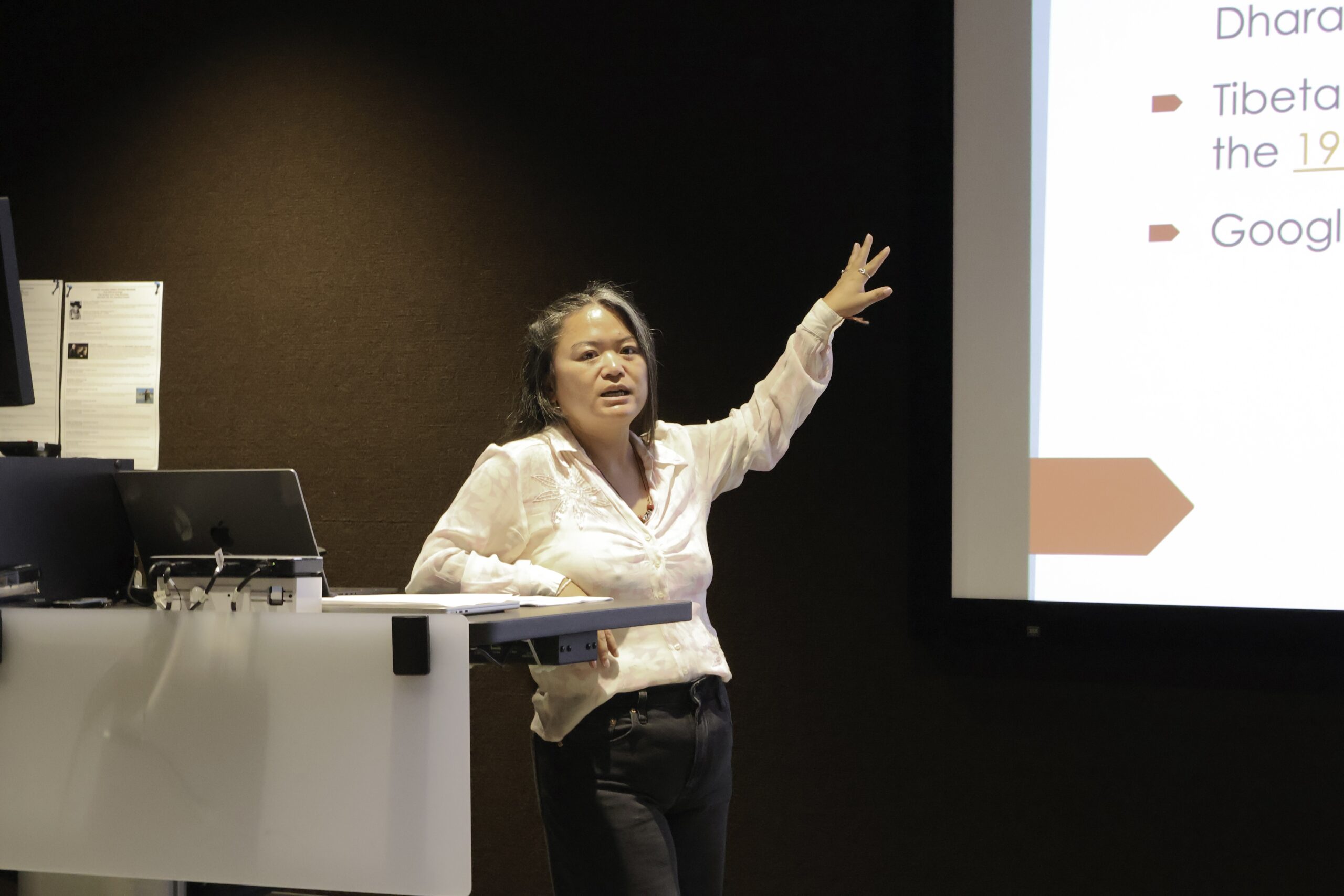Dr. Dawa Lokyitsang discusses Tibet under Chinese colonialism
September 12, 2025
 Abigail Hebert
Abigail HebertThis past Monday, Dr. Dawa Lokyitsang, a Tibetan-American anthropologist, visited Bowdoin to deliver a talk on Tibetan kinship ties under Chinese colonialism. In the face of this colonialism, many Tibetans immigrated to Dharamsala, India, where the exiled Tibetan leader, the 14th Dalai Lama, resided. Dharamsala was also home to the Tibetan Children’s Village (TCV), a Tibetan refugee school and town, which became a hub for creative horizontal kin-making efforts between classmates who shared biological kinship ties.
Tibetan schools such as the TVC were created as a collaborative effort between the Dalai Lama and the Indian government in response to violent colonial developments in Tibet under the Chinese government.
“Tibetan parents willingly sent their children to Tibetan schools in India as an anti-colonial effort,” Lokyitsand said. “School staff and administrators engaged in and emphasized a shared national history of Tibet to inform students of their identity as Tibetans…. These teachings helped form political subjectivities and a shared sense of national identity among students. Stressing a common history, as well as this shared struggle for freedom, kinship was reconfigured along national lines.”
The importance of chosen kinship ties was especially important given that many of the Tibetan students had left their families behind.
“Such pedagogies of belonging emphasized national belonging and shared loss rather than blood relations. This worldview contributed to how students understood themselves [and] those around them … and emphasized what they had in common rather than what made them different elsewhere,” Lokyitsang said.
Lokyitsang explained the unique kinship-making processes Tibetan students participated in to establish chosen families.
“[My father] recalled the kinning practice that became popular among his peers [in the 1960s]…. Children wrote letters seeking permission from the person from whom they desired such relations. These letter writers were usually not biologically related to the letter receiver,” Lokyitsang said. “If the person wrote back in confirmation, social relations of kinship had been established, and from then on, they would begin to refer to and treat one another as real brothers and sisters.”
Lokyitsang also elaborated on the lives of Tibetan semi-orphans, children who grew up in an exile school system without their parents after attending school. Most had not returned to Tibet, and many of them were in vulnerable positions regarding employment, substance abuse or formation of relationships, though some were aided by their childhood chosen families.
Jones Walther ’28, a member of the audience, decided to come to the talk after listening to Lokyitsang speak in her anthropology class. Walther explained her interpretation of what chosen family means within one’s social and personal identity.
“In this case, it seems more to me like in [Tibetans’] specific situation, the importance of being able to choose a family was maybe another form of resistance toward Chinese colonialism,” Walther said. “Because even amidst the efforts of the Chinese government to break colonial ties and cultural ties …, they still chose to seek [the ties] out and heal them regardless. Even though on a more personal level, it may have been to have a family, because that’s important for everybody, it also seems to have [that] secondary role.”
Sabrina Kearney ’26 was compelled to attend the talk because she wanted to expand on her previous experience working with the Tibetan refugee community through the McKeen Center for the Common Good’s Global Citizens Fellowship.
“I spent my [first-year] and sophomore summers working in Dharamshala with the Tibetan refugee community, and I was really excited to see this talk because I haven’t seen issues about Tibet or Tibetan culture represented a lot on Bowdoin’s campus,” Kearney said.
Kearney also found it interesting how Lokyitsang utilized the personal stories of Tibetan refugees instead of solely focusing on data to study the impacts of communal networks among TCV graduates.
“Especially related to issues like that, centering those personal stories is so important to really understand the deeper psychological aspects of this issue,” Kearney said. “[Statistics] don’t really show the depth of hardship and resilience of this community…. I hope that [this] also made the talk more engaging and easier to connect to for people who attended that were not familiar with [the topic].”

Comments
Before submitting a comment, please review our comment policy. Some key points from the policy: